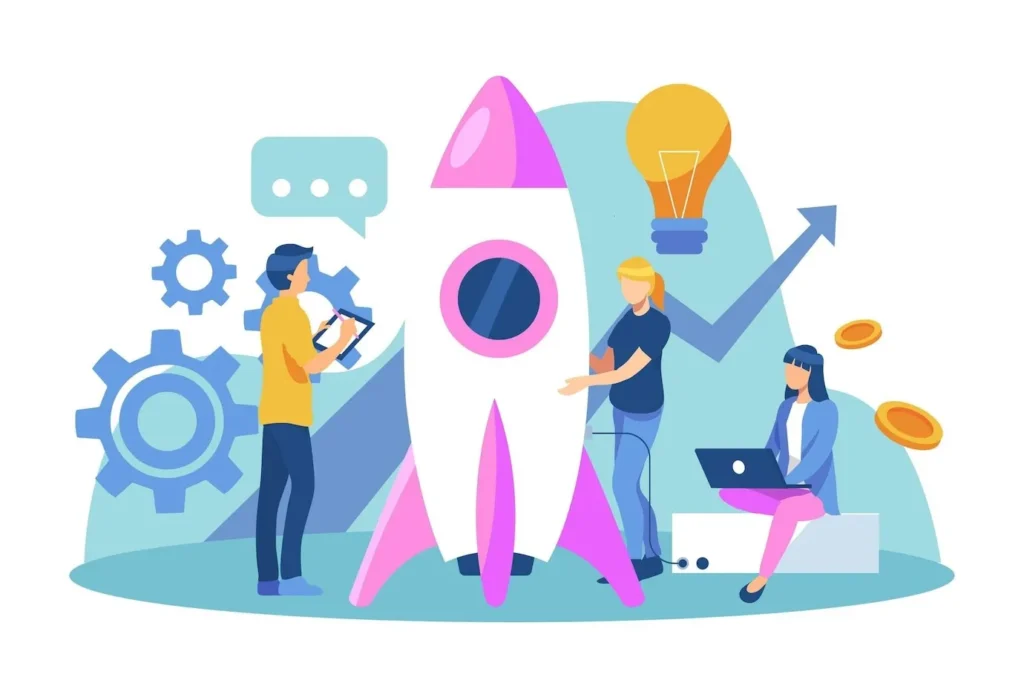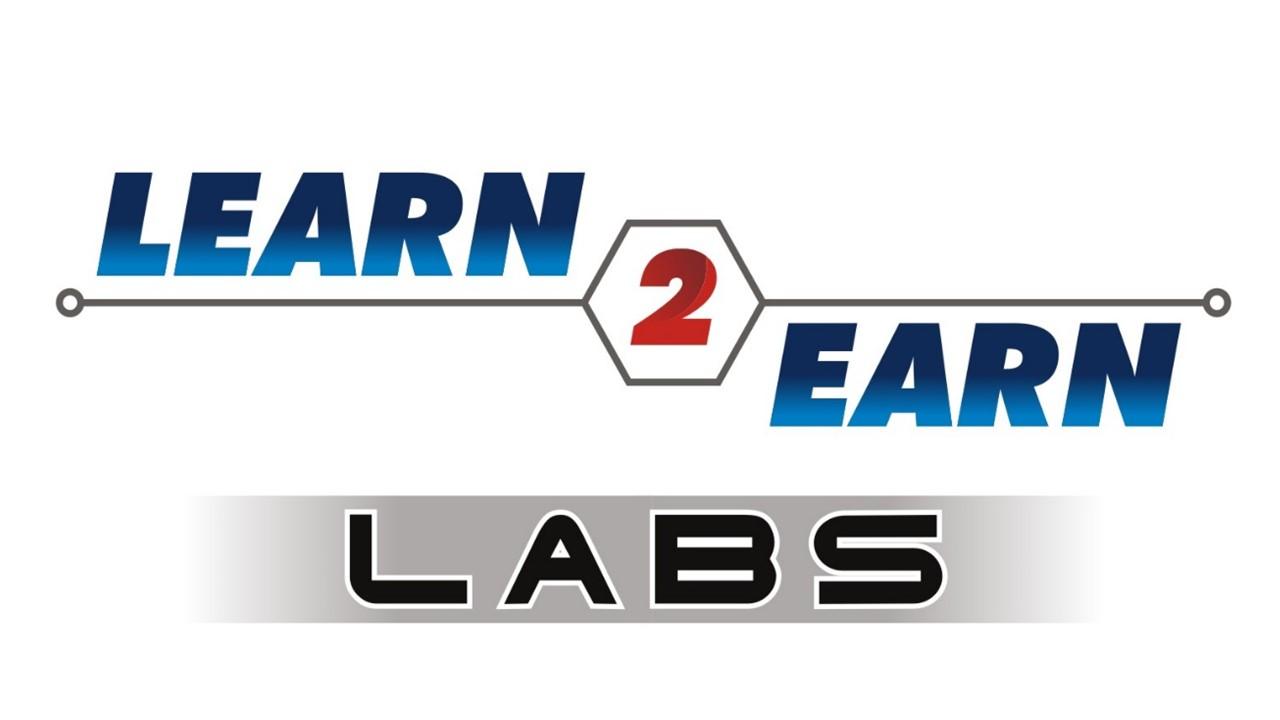
Build Your Startup Today
Transform Your Vision into Reality with Learn2Earn Labs
Do you dream of starting your own business? Do you aspire to solve real-world problems and build a lasting legacy through innovative services? The Startup & Innovation Training Program by Learn2Earn Labs is designed to transform your entrepreneurial dreams into reality.
This comprehensive, two-year program equips you with the skills, mindset, and practical knowledge needed to launch and grow a successful service-based startup.
At Learn2Earn Labs, we believe in learning by doing. This training program combines intensive theoretical learning, hands-on exercises, real-world case studies, and practical assignments to ensure you don’t just learn but experience entrepreneurship first-hand.
Why Join this Training Program

Who Can Join
This program is for anyone with a passion for entrepreneurship, regardless of their background. It is ideal for:
- Aspiring entrepreneurs looking to start a service-based business.
- Professionals seeking to transition into entrepreneurship.
- Students or graduates aiming to turn their innovative ideas into reality.
- Individuals with no prior business experience but a strong desire to learn.
Why Choose Learn2Earn Labs

Benefits of the Program
- Gain clarity on how to identify and solve real-world problems.
- Learn to build and test prototypes that address user needs.
- Develop skills to create effective business models and marketing strategies.
- Acquire the knowledge to manage finances, secure funding, and scale your startup.
- Build confidence to pitch your ideas to investors and stakeholders.
Terms & Conditions
- Program Duration: 2 years, with 3–4 hours of daily sessions (weekends included for additional workshops).
- Eligibility: No prior experience is required, but dedication and willingness to learn are mandatory.
- Assessment: Regular assessments will be conducted through assignments, case studies, and projects.
- Attendance: 85% attendance is mandatory to qualify for certification.
- Startup Ownership: All ideas developed during the program belong exclusively to the participant.
- Code of Conduct: Participants must maintain professionalism and respect for mentors and peers.
How Much Can You Contribute?
Starting a service-based startup doesn’t require a huge initial investment. The training will help you identify cost-effective ways to launch and run your business. On average, participants can start with as little as ₹50,000–₹1,00,000, depending on the scope of their idea. This investment covers:
- Market research and surveys
- Building prototypes
- Marketing campaigns
With proper guidance from Learn2Earn Labs, you’ll learn how to optimize resources and focus on profitability and scalability.
How Hard Do You Need to Work?
Entrepreneurship is not for the faint-hearted, but with the right mindset, dedication, and guidance, it can be the most rewarding journey of your life.
- Expect to dedicate 20–25 hours per week for learning and practicals.
- Be ready to step out of your comfort zone—whether it’s conducting surveys, pitching to investors, or refining your ideas.
- Success will require consistent effort, resilience, and adaptability.
Your Entrepreneurial Journey Starts Here
By joining the Startup & Innovation Training Program at Learn2Earn Labs, you’re not just enrolling in a course—you’re committing to a life-changing journey. This program ensures that by the end of two years, you’ll not only have the skills to start your own business but also the confidence and support network to make it thrive.
Take the first step towards becoming a successful entrepreneur. Learn with us, earn with us, and lead the future of innovation.
Training Modules
Understanding Entrepreneurship and Startups (Weeks 1–4)
Objective: Gain clarity about startups, entrepreneurial mindset, and service-oriented businesses.
- Key Concepts
- What is entrepreneurship?
- Difference between product-based and service-based startups
- Traits of a successful entrepreneur
- Practical Exercises
- Write your definition of entrepreneurship and discuss in groups.
- Research 3 service startups in your locality and present their business models.
- Assignment:
- Create a journal entry about why you want to become an entrepreneur.
- Analyze the failures of one failed service startup and suggest improvements.
Vision, Motivation, and Goal Setting (Weeks 5–10)
Objective: Develop a clear vision, mission, and SMART goals for the business.
- Vision and Mission Development
- How to create a vision statement
- Aligning personal goals with business goals
- Case study: Vision and mission of Airbnb
- Goal Setting
- Setting long-term and short-term goals
- Prioritization using Eisenhower Matrix
- Exercises
- Draft your startup’s vision and mission statement.
- Break down a 5-year business goal into actionable steps.
- Assignment:
- Create a detailed roadmap of your entrepreneurial journey for the next year.
Problem Identification and Idea Validation (Weeks 11–20)
Objective: Learn to identify real-world problems and validate business ideas.
- Techniques for Problem Identification
- Observing gaps in existing services
- Analyzing complaints and reviews of competitors
- Idea Validation
- Conducting surveys and interviews
- Using Google Trends to validate demand
- Exercises
- Conduct a survey with at least 100 people to identify a service need.
- Interview 10 potential customers about their pain points.
- Assignment:
- Submit a report summarizing your findings and proposing 3 potential ideas.
Understanding the Customer (Weeks 21–30)
Objective: Master user research, persona creation, and customer-centric approaches.
- User Research
- Techniques: Focus groups, one-on-one interviews
- Tools for data collection: Typeform, Google Forms
- Creating User Personas
- Defining customer archetypes
- Understanding customer needs and expectations
- Exercises
- Interview 5 users and create detailed personas.
- Map a customer journey for a selected service idea.
- Assignment:
- Develop a user research report detailing personas and user journeys.
Business Model and Revenue Generation (Weeks 31–40)
Objective: Design a sustainable business model and revenue streams.
- Business Model Canvas
- Key components: Value proposition, customer segments, revenue streams
- Revenue Generation Models
- Subscription-based, freemium, pay-as-you-go
- Exercises
- Create a business model canvas for your idea.
- Propose 3 potential revenue models with pros and cons.
- Assignment:
- Submit a detailed revenue plan with financial projections.
Prototyping and Validation (Weeks 41–50)
Objective: Develop and test a prototype of the proposed service.
- Prototyping Basics
- Tools: Figma, Canva, Miro
- Building low-fidelity prototypes
- User Testing
- Gathering feedback from early adopters
- Iterative improvement cycles
- Exercises
- Build a basic prototype for your service.
- Conduct testing sessions with 10 users and document feedback.
- Assignment:
- Prepare a report on user feedback and improvements made.
Marketing and Branding (Weeks 51–64)
Objective: Build a strong brand and effective marketing strategies.
- Brand Development
- Logo design, tagline creation, brand voice
- Marketing Techniques
- Social media marketing, SEO, paid ads
- Creating marketing campaigns
- Exercises
- Design branding elements for your startup.
- Create a content calendar for one month.
- Assignment:
- Launch a small-budget ad campaign and track performance metrics.
Financial Planning and Funding (Weeks 65–76)
Objective: Manage finances and prepare for investor funding.
- Cash Flow Management
- Tracking expenses and revenue
- Break-even analysis
- Investor Pitching
- Building a pitch deck
- Delivering a compelling pitch
- Exercises
- Create a cash flow sheet for 6 months.
- Conduct a mock pitch session with peers.
- Assignment:
- Submit a funding proposal with financial projections.
Operations and Scaling (Weeks 77–88)
Objective: Build operational efficiency and scale your business.
- Operational Management
- Workflow optimization
- Automation tools
- Scaling Strategies
- Expanding to new markets
- Diversifying service offerings
- Exercises
- Draft an operational workflow for daily tasks.
- Propose a plan for scaling your business geographically.
- Assignment:
- Write a scalability plan with timeline and milestones.
Launch and Sustainability (Weeks 89–96)
Objective: Prepare for launch and ensure long-term success.
- Launch Strategies
- Using beta testing for refinement
- Building hype through pre-launch marketing
- Ensuring Sustainability
- Adapting to changing markets
- Continuous learning and improvement
- Exercises
- Plan a soft launch and gather early user feedback.
- Analyze post-launch performance and propose improvements.
- Final Assignment:
- Submit a comprehensive business report covering all aspects of your startup, including vision, market research, business model, financial planning, marketing strategies, and growth plans.
Objective: Launch a real-world service-based startup under mentorship.
- Project Scope
- Launch your startup and track progress.
- Build customer relationships and refine services.
- Mentorship
- Weekly check-ins with mentors to review progress.
- Guidance on overcoming real-world challenges.
- Evaluation
- Present the journey of your startup to a panel.
- Receive constructive feedback and final certification.



